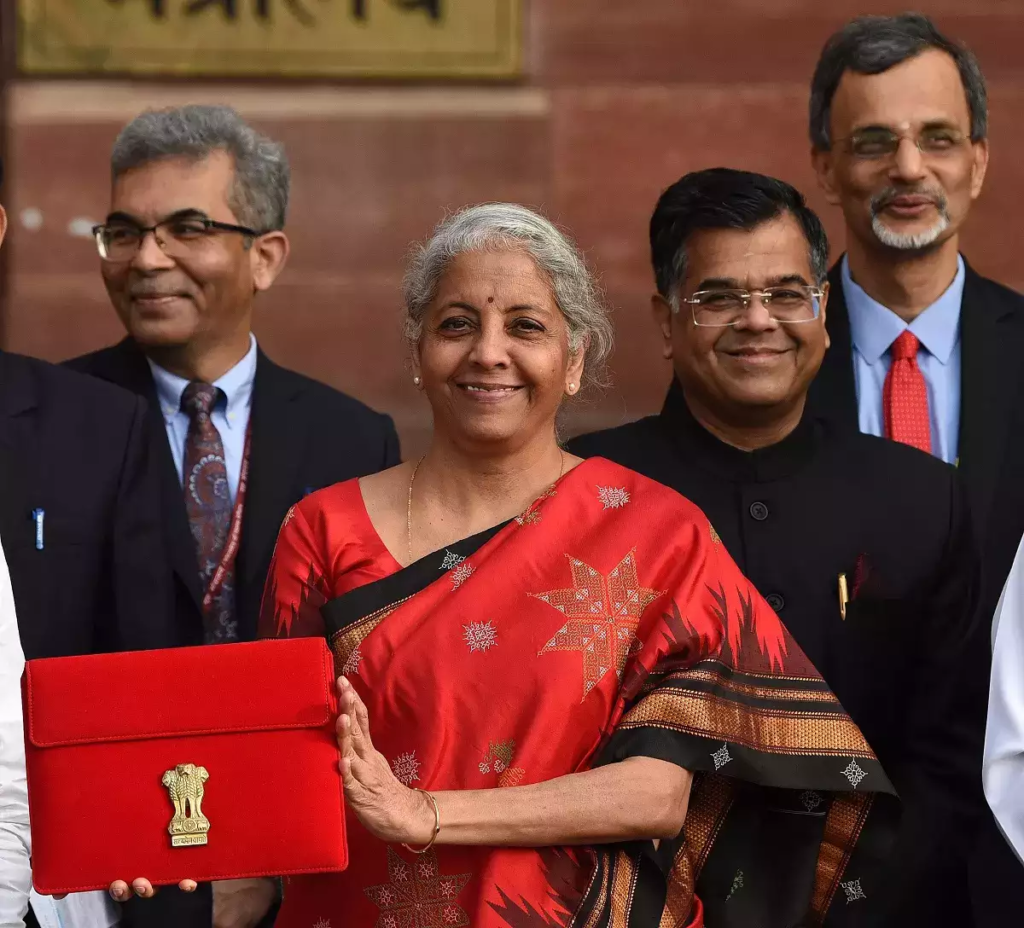The government has created various plans to improve the nation’s infrastructure and real estate, she said during her Budget presentation. The following announcements have been made by Finance Minister.

The Union Finance Minister, Nirmala Sitharaman, presented the Budget 2023–24 to the Parliament.
The government has created various plans, according to the Finance Minister, which would improve the nation’s infrastructure and real estate, she said during her Budget presentation.
The following announcements have been made by Finance Minister:
1. Finance Minister increased the PM Awas Yojana budget by 66%, bringing it to over ‘79,000 crore.
2. Additionally, FINANCE MINISTER recommended capping the deduction from capital gains on residential property investment under sections 54 and 54F at 10 crore. Limiting the income tax exemption from the revenues of extremely valuable insurance policies.
3. FINANCE MINISTER also suggested changing the guidelines for calculating capital gains in cases of joint property development to include the money received in the form of a cheque or other kind of payment.
4. Union Finance Minister, Nirmala Sitharama also said “While interest paid on borrowed capital for acquiring or improving a property can, subject to certain conditions, be claimed as deduction from income, it can also be included in the cost of acquisition or improvement on transfer, thereby reducing capital gains. It is proposed to provide that the cost of acquisition or improvement shall not include the amount of interest claimed earlier as deduction.”
5. FINANCE MINISTER also proposed to change the rules for calculating capital gains in cases of joint property development to include the money paid by cheque or another form of payment as consideration.
6. Cities will be enticed to increase their credit worthiness for municipal bonds by ring-fencing user charges on urban infrastructure and implementing property tax governance reforms.
7. FINANCE MINISTER said like the RIDF, an Urban Infrastructure Development Fund (UIDF) will be established through use of priority sector lending shortfall. This will be managed by the National Housing Bank, and will be used by public agencies to create urban infrastructure in Tier 2 and Tier 3 cities. States will be encouraged to leverage resources from the grants of the 15th Finance Commission, as well as existing schemes, to adopt appropriate user charges while accessing the UIDF. We expect to make available ₹10,000 crore per annum for this purpose.
8. The newly established Infrastructure Finance Secretariat will assist all stakeholders for more private investment in infrastructure, including railways, roads, urban infrastructure and power, which are predominantly dependent on public resources, said FINANCE MINISTER.
9. States and cities will be encouraged to undertake urban planning reforms and actions to transform our cities into ‘sustainable cities of tomorrow’. This means efficient use of land resources, adequate resources for urban infrastructure, transit-oriented development, enhanced availability and affordability of urban land, and opportunities for all, said FINANCE MINISTER.
10. It is proposed to provide exemption to any income arising to a body or authority or board or trust or commission, (not being a company) which has been established or constituted by or under a Central or State Act with the purposes of satisfying the need for housing or for planning, development or improvement of cities, towns and villages or for regulating any activity or matter, irrespective of whether it is carrying out commercial activity, said FINANCE MINISTER.
Saurabh Garg, Co-Founder and CBO, NoBroker.com said, “The announcement of the Union Budget 2023 brings positive hope for the housing sector. With the immense rise in allocation towards Pradhan Mantri Awaas Yojana to ₹79,000 crore for the next fiscal, this is expected to boost development of more low-income and affordable housing across the country.”
He added, “However, few announcements in the budget appears to be aiming towards better targeting of tax concessions and exemptions. For instance – the FINANCE MINISTER has proposed to limit the deduction from capital gains on residential property investment under sections 54 and 54F at 10 crores. Till now, there was no such limit and typically, HNIs would utilize this avenue to reduce their Capital Gains tax liability. However, it is now proposed to substantially limit the benefit available on capital gains tax arising to HNIs,” adding, “The increment in the tax rebate limit to ₹7 lakh and the reduction in the tax structure across all slabs would definitely help pumping in more liquidity in the markets. Individuals would now have more disposable income to save and invest in homes which would further propel the growth prospects of the sector.” (more Details: Informations Only)